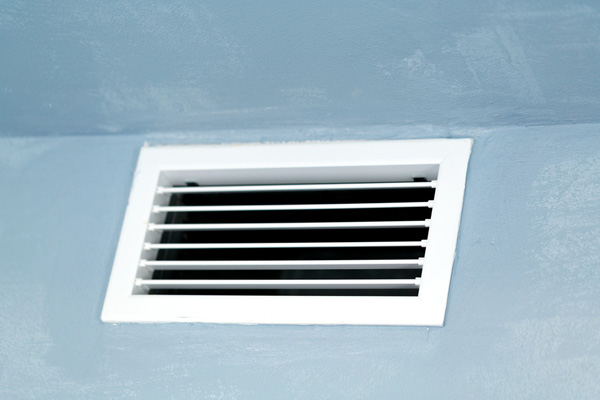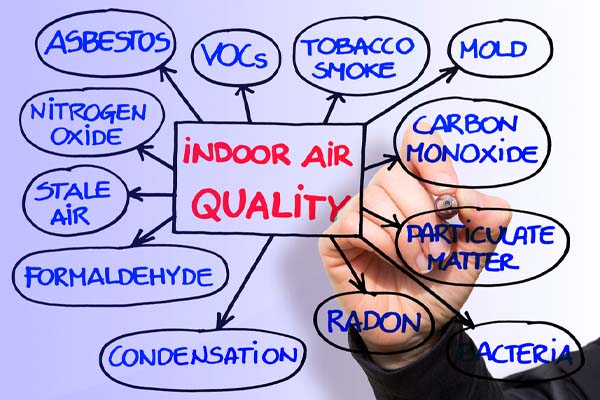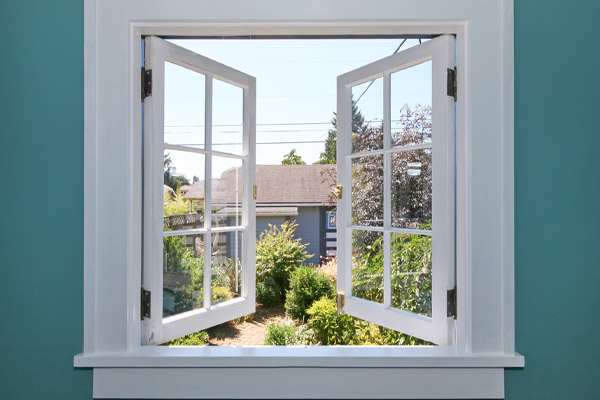How Much Ventilation Does A Home Need?

Understanding the appropriate level of home ventilation is vital for maintaining a healthy, comfortable, and energy-efficient living environment. Adequate ventilation helps maintain indoor air quality by removing pollutants, moisture, and odors. It also helps regulate temperature, reducing the need for excessive heating or cooling. This guide delves into the importance of ventilation for the residents’ well-being and the home’s overall efficiency. We highlight the delicate balance between keeping a constant flow of fresh air and minimizing energy loss.
Understanding Home Ventilation
Contents
- 1 Understanding Home Ventilation
- 2 Why is Adequate Ventilation Important?
- 3 Factors Influencing Ventilation Needs
- 4 How to Determine Your Home’s Ventilation Needs
- 5 The Risks of a DIY Approach to Ventilation
- 6 Ventilation Standards and Guidelines
- 7 How to Improve Home Ventilation
- 8 Cost-Benefit Analysis of Home Ventilation
- 9 Call McAllister Energy For All Of Your HVAC Requirements
Ventilation is the intentional exchange of indoor and outdoor air within a space. It allows for the continuous flow of fresh air while expelling indoor pollutants, humidity, and odors. Home ventilation plays a pivotal role in maintaining a healthy and comfortable indoor environment. It provides homeowners access to clean and breathable air.
Related Article: Key Differences Between HEPA & MERV Filters
Different Types of Home Ventilation
There are two types of ventilation:
- Natural Ventilation: Natural ventilation relies on air movement through open windows, doors, and vents. This is driven by natural forces such as wind and temperature differences. It is a passive approach that can be influenced by the building’s design, orientation, and local climate.
- Mechanical Ventilation: This involves using mechanical systems like fans, air exchangers, and ducts to control and direct the airflow. This is useful in buildings with limited natural ventilation opportunities or when specific air exchange rates are required.
The Role of Ventilation in Maintaining Indoor Air Quality

Ventilation helps improve indoor air quality by:
- Pollutant removal
- Humidity control
- Odor elimination
- Dilution of indoor pollutants
- Comfort and temperature regulation
Why is Adequate Ventilation Important?
Adequate ventilation is essential for several reasons:
- Maintaining Air Quality: Proper ventilation keeps a constant flow of fresh air, diluting indoor pollutants like volatile organic compounds (VOCs), allergens, and airborne particles. This prevents the buildup of contaminants. It promotes healthier indoor air quality and reduces the risk of respiratory issues.
- Preventing Mold and Moisture Problems: Ventilation helps control indoor humidity levels by expelling excess moisture. This prevents the spread and growth of mold, mildew, and other bacteria that thrive in damp environments. Effective ventilation safeguards against structural damage and protects occupants from potential health hazards.
- Removing Odors and Excess Heat: Adequate ventilation eliminates unpleasant odors from cooking, pets, and other sources. It keeps indoor spaces fresh and inviting. It also removes excess heat generated by appliances, preventing discomfort and the need for excessive air conditioning.
- Health Benefits: Proper indoor ventilation improves respiratory health by reducing exposure to allergens, irritants, and pollutants. It can alleviate symptoms of allergies, asthma, and other respiratory conditions, promoting overall well-being.
Related Article: How Can UV Lights Improve Your HVAC System?
Factors Influencing Ventilation Needs
Several factors influence the ventilation needs of a home:
- Size and Layout of the Home: The size of the home and its layout play a significant role in determining how air circulates within the space. Larger homes may require additional ventilation points for even airflow to all areas.
- Occupancy and Lifestyle Factors: The number of occupants in a home and their daily activities impact ventilation needs. More occupants and activities like cooking, showering, and using household products generate higher indoor pollutants that require efficient ventilation.
- Local Climate and Season: The climate and weather conditions in the local area influence ventilation requirements. In humid climates, adequate ventilation helps manage moisture levels. In colder climates, maintaining proper airflow can prevent indoor condensation and subsequent mold growth.
- Home’s Construction and Age: The construction materials and design of the home affect how well it naturally allows air exchange. Older homes may have fewer airtight features, making proper ventilation more critical. A newer, energy-efficient home with improved insulation and sealing might require mechanical ventilation for adequate airflow.
How to Determine Your Home’s Ventilation Needs
Below we discuss some methods that you can use to determine how much ventilation your home requires.
- Professional Assessment Methods: Hiring a professional HVAC technician or energy auditor is one of the most accurate ways to assess your home’s ventilation needs. They can perform detailed assessments using blower door tests, air quality monitors, and airflow measurements to determine the appropriate ventilation rates based on home size, occupancy, and local climate.
- DIY Assessment and Calculations: Basic DIY assessments involve monitoring indoor air quality and observing humidity levels. Calculations can be done using guidelines provided by organizations and groups like ASHRAE (American Society of Heating, Refrigerating, and Air Conditioning Engineers) to estimate required ventilation rates based on the number of occupants and floor area.
- Online Tools and Resources: Various online tools and calculators are available to help estimate ventilation needs. These tools consider factors such as home size, number of occupants, and activity levels to provide rough estimates of required airflow rates. While convenient, these tools may not accurately account for specific home characteristics and local conditions as professional assessments.
Related Article: Signs You Need Better Air Quality At Home
The Risks of a DIY Approach to Ventilation
Ventilation requirements involve complex factors such as home size, occupancy, and local climate. A DIY approach might lead to inaccurate calculations, resulting in either insufficient or excessive airflow rates that compromise indoor air quality and comfort.
Improperly designed ventilation systems can introduce outdoor pollutants, allergens, or excess moisture into indoor spaces. Without proper expertise, a DIY ventilation solution might inadvertently worsen air quality, leading to health concerns for occupants.
Incorrect installation or modifications to HVAC systems can lead to inefficiencies, breakdowns, or damage. This can result in expensive repairs and negatively impact overall home comfort and efficiency.
A DIY approach to ventilation can pose safety risks. Mishandling electrical components, ventilation ducts, or systems could result in accidents, fires, or health hazards for occupants. If a DIY solution fails to meet building codes or leads to issues, it may result in legal and liability concerns.
Related Article: What Is Mechanical Ventilation & How Does It Impact Your Home Comfort?
Ventilation Standards and Guidelines
Organizations like ASHRAE provide ventilation standards and guidelines that offer recommendations for indoor air quality and comfort. These standards specify ventilation rates, airflow requirements, and design considerations to ensure optimal ventilation in residential and commercial buildings.
Ventilation standards apply to various homes, considering occupancy, building size, and climate. Different types of homes, such as single-family houses, apartments, and high-rise buildings, have specific ventilation requirements. Standards offer flexibility to adapt to varying architectural designs and occupant needs.
Related Article: The Difference Between A Portable & Whole Home Air Filtration System
How to Improve Home Ventilation

You can improve your home’s ventilation by:
- Regular HVAC System Maintenance: Clean or replace air filters, check for duct leaks, and make sure that the system is operating efficiently. A well-maintained HVAC system promotes proper airflow and ventilation throughout the home.
- Ventilation System Upgrades and Options: Upgrade ventilation systems to meet current standards. Mechanical ventilation options include exhaust fans, supply fans, and heat recovery ventilators (HRVs) or energy recovery ventilators (ERVs), which exchange stale indoor air for fresh outdoor air while preserving energy. These systems provide controlled ventilation, especially in tightly sealed homes.
- Natural Ventilation: Open windows strategically to create cross-ventilation and promote airflow. Position windows on opposite sides of the room or house to allow fresh air to enter and stale air to exit. Use window screens to keep insects from entering while enjoying the fresh air. Use outdoor conditions like cooler evening air to naturally cool indoor spaces.
Related Article: FAQ About IAQ: Answers To Your Indoor Air Quality Questions
Cost-Benefit Analysis of Home Ventilation

Some advantages of improving the ventilation of your home include:
- Potential Energy Savings: Proper home ventilation can save energy by optimizing indoor room temperature and reducing the need for excessive heating or cooling. Well-designed ventilation systems can recover heat from outgoing air. It helps maintain indoor comfort while minimizing energy consumption.
- Health and Comfort Benefits: Improved indoor air quality through effective ventilation contributes to better health and comfort for homeowners. Adequate ventilation reduces the concentration of pollutants and allergens. It lowers the risk of respiratory issues and enhances overall well-being.
- Long-Term Home Preservation: Proper ventilation prevents excess moisture buildup. Moisture buildup can lead to mold growth, structural damage, and deterioration of building materials. By maintaining optimal humidity levels and preventing moisture-related problems, ventilation supports the longevity and preservation of the home’s structural integrity.
Related Article: 9 Ways You Can Improve Indoor Air Quality During Winter
Conclusion
Proper home ventilation helps maintain indoor air quality, comfort, energy efficiency, and structural integrity. Understanding factors influencing ventilation needs and considering ventilation standards is crucial. While DIY attempts might pose risks, hiring professionals guarantees accurate assessments and effective solutions tailored to your home’s unique requirements. Prioritizing professional advice safeguards against potential pitfalls. It will promote a cleaner, healthier, and more comfortable living environment.
Related Article: What Is A MERV Rating?
Call McAllister Energy For All Of Your HVAC Requirements

McAllister Energy offers superior heating and cooling services throughout southern New Jersey. We hire the best-certified technicians who can provide you with excellent HVAC tune-ups, repairs, installations, and replacements. Each of our techs has the knowledge and experience to service your HVAC system correctly.
McAllister Energy guarantees the most competitive heating and cooling service costs in the area. Our maintenance services can improve your comfort and increase your energy efficiency while reducing your home heating and cooling costs. If you happen to need an HVAC repair or replacement system, we can recommend the best one for your home while staying within your budget. We back all of our work with a guarantee to ensure your satisfaction. To schedule a service appointment, give McAllister Energy a call today. We offer free, in-home estimates.
You can click here to contact us now or call us at (856) 665-4545 to find out more! Click the link to view our service area.